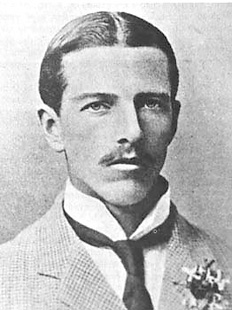Carnegie, David Wynford (1871-1900), was a British explorer and gold prospector in Western Australia. He is best known for leading an 1896 expedition that began at the town of Coolgardie, traveled through the Gibson and Great Sandy deserts, and arrived at Halls Creek in the Kimberley area.

Carnegie was born in London on March 23, 1871, to Scottish parents. In 1892, he joined the gold rush to Coolgardie, where he worked in several mines.
Carnegie’s 1896 expedition was noteworthy as an inland crossing of Western Australia from south to north. He was not the first European to make the journey, but he was the first to seek gold deposits and a direct stock route (cattle or sheep pass) between Coolgardie and the Kimberley district. Carnegie, along with four companions, left Coolgardie on July 9, 1896. Although the group traveled during the region’s cooler months, conditions were severe. At one point, the group went almost two weeks without finding fresh water. The party ventured through the Gibson and Great Sandy deserts, reaching Halls Creek on Dec. 4, 1896. They began their return journey on March 22, 1897, and arrived in Coolgardie in August. In total, they covered more than 3,000 miles (4,800 kilometers) in 13 months.
Carnegie returned to the United Kingdom in late 1897. He wrote Spinifex and Sand (1898), a book about his experiences in Western Australia. (Spinifex is a spiny grass common to Australia’s deserts.) In 1899, Carnegie accepted a British government position in the protectorate of Nigeria. He began his duties there in December 1899. Carnegie died on Nov. 21, 1900, after being wounded by a poisoned arrow during a minor conflict in Chad.
